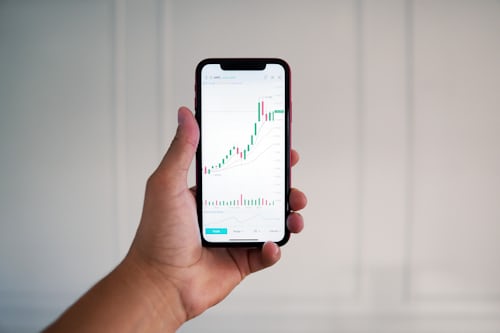|
Become a member

If you decide to buy one of the bonds mentioned above, you become a creditor vis-à-vis the issuing company. This means that you do not acquire co-ownership in the respective company, but act practically as a capital provider and thus lender. Until the capital is repaid in full, you have a creditor claim against the entrepreneur, which primarily consists of the bond being repaid and you receiving the agreed interest during the term.
If, on the other hand, you buy shares, this does not make you a creditor but, legally speaking, a co-owner of the company. As a shareholder, you not only have co-ownership of the company, but also a right of co-determination. You can exercise this right, for example, by attending the annual general meeting.
For most investors, however, co-determination is not the main reason why they decide to invest in shares. Instead, it is primarily possible price gains that are the focus when one acquires shares. Shares certify a certain share in the share capital of the respective public limited company and are therefore also called share certificates. For you as an investor, however, this plays only a subordinate role in practice, because it is of course especially the behaviour of share prices on the stock exchange that is of interest to you.
Shares are very liquid and flexible securities
One of the main characteristics of shares is that they are very flexible and liquid securities. Flexible in this context means that there are a large number of shares on the market that you as an investor can choose between. The securities are liquid primarily because shares can be traded on the stock exchange every working day. You therefore have the possibility to sell the shares in your custody account at any time and to dispose of the credit balance resulting from the sales proceeds on your clearing account.
Another feature of shares is that each individual security can be precisely determined. In Europe, this is possible on the one hand with the securities identification number (WKN), but on the other hand the internationally used ISIN code also applies to each security. This is an identification number with which each security can be precisely assigned. One of the important characteristics of shares is that the securities can be divided into different groups.

What types of shares are there?
Shares can be divided into several groups, differentiated according to how the rights are transferred and what rights the individual share contains at all. With regard to the type of transfer of rights, a distinction is made between the following three variants:
- Bearer shares
- Registered shares
- registered shares with restricted transferability
In earlier times, so-called bearer shares dominated the stock market in Exness. The main feature of these is that the shares can be transferred informally from the seller to the buyer. This means that the public limited company does not know in detail who currently owns which number of shares.
In the case of registered shares, the shareholders are actually entered in the shareholders' book of the respective public limited company with their name and some other details. Whenever there is a change of ownership, the public limited company is then informed who the new owner of the securities is by entry in the shareholders' register.
|